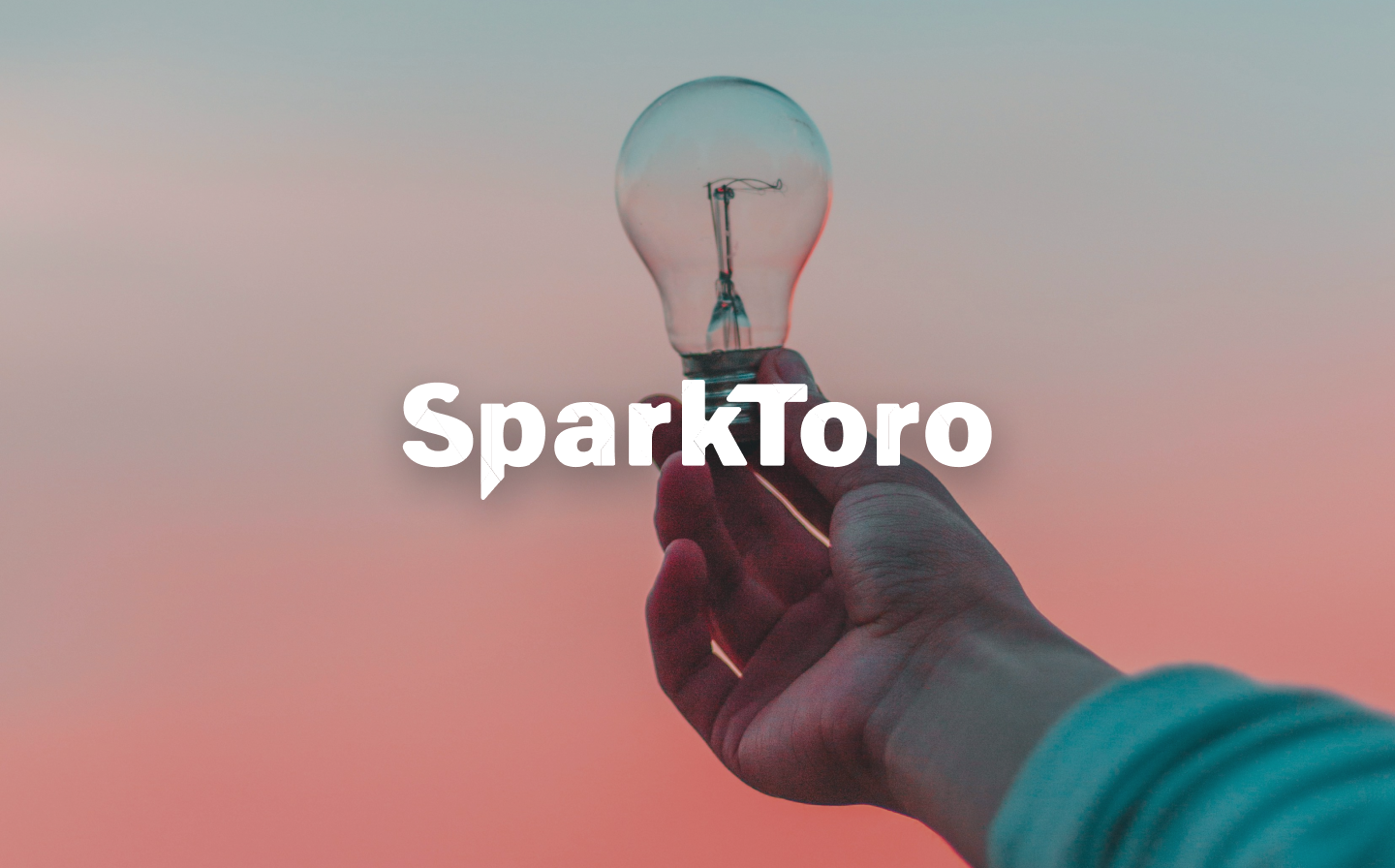Podcasts
The history of spam
Email’s Not Dead: Season 1, Episode 1
The history of spam
Email's Not Dead
About this episode:
Email isn’t back from the grave – it was never in there in the first place. Jonathan and Eric are here to bring you the history of spam, spam, spam. Who coined it, when the first spam message occurred, and how it makes us feel (spoiler alert: not great).
Meet your presenters

Jonathan Torres
Manager of the TAM team at Sinch Mailgun

Eric Trinidad
Technical Account Manager II at Sinch Mailgun
transcript
Email’s Not Dead – S1, E1: The history of spam
Overview
00:00:05
Eric Trinidad: Hello there and welcome. My name is Eric and this is Jonathan.
00:00:08
Jonathan Torres: Hello!
00:00:09
Eric Trinidad: Hey, we're here to talk to you this week about some spam stuff.
00:00:12
Jonathan Torres: Yes.
00:00:13
Eric Trinidad: Man, I know you love spam, don't you, John?
00:00:16
Jonathan Torres: Yeah. In the can.
00:00:17
Eric Trinidad: Yeah, as long as it's in the can, that's totally fine.
00:00:20
Eric Trinidad: That's the best kind of spam. The spicy medium. That is spam. No, that's not it, John. Email, email, spam. That's exactly what we're here to talk to you about today.
00:00:29
Jonathan Torres: At least for now.
00:00:31
Jonathan Torres: So to kind of give an intro to what we're doing here, like we just want to talk about email in general, like e-mail is a great and wonderful thing that's been in our lives for so long. Sorry. That's just my sales pitch. You know what? Yeah, it's it's inevitable. I think every person in the world now has to interact in some way, shape or form with email. So, yeah, let's talk about some of the things that one, you know, we can improve with email. We want to get better at email. Like we are part of a company that wants to do better with email. And yeah, we want to do better with email. Right.
00:01:00
Eric Trinidad: Yeah, yeah. We want to make sure that gets into the inbox, you know, get that whole deliverability then.
00:01:04
Eric Trinidad: Yes, exactly. But what we don't like is spam and getting marked spam, like man it has such like a long and robust history.
00:01:13
Jonathan Torres: Oh very.
00:01:15
Eric Trinidad: It's so effervescent as it starts. Yeah. Thanks. That's a five-dollar word for the day. It started back in the 70s, I think when it first got coined by our friends over at Monty Python.
00:01:31
Jonathan Torres: Yes.
00:01:31
Eric Trinidad: Jonn, you love you some Monty Python. I know you do. But yeah, I guess it started off as a skit and, you know, just everybody screaming out spam and, you know, us nerds, we love spam. So, yeah, we love skits. They're funny. We love Monty Python. Yeah. So it just became one of those things that just came hand in hand.
00:01:52
Jonathan Torres: Yes, completely. Yeah, exactly. That's exactly what happened. But why, why why does that skit doing what he does, like why did it become so popular, why become so synonymous with what we know is email spam today. But we can definitely dive into that if you want to go into some of that. So I mean, originally when we started looking at spam, like, first of all, let's talk about, like, the first thing that was ever spam. I don't know, you know, a little bit of the history of this. So who did it? Who started this? Who started us down this path? Who did it? So the earliest documented one was Digital Equipment Corporation. Gary Thurek. I can't even say his name. Gary Thurek.
00:02:31
Eric Trinidad: Good old Gary Thureksen.
00:02:35
Jonathan Torres: Yeah. I mean, he sent the first email, documented email form of spam on ARPANET. So ARPANET.
00:02:43
Eric Trinidad: Yeah. So it was just like kind of an internal like intranet. Like he was just sending it out to everybody else in his firm and he just sent it out to all of his contacts. Really didn't even mean to do it. He just did it and got a big old slap on the wrist for it, right.
00:02:57
Jonathan Torres: Yeah. I mean, as much as they could back in the day.
00:02:59
Eric Trinidad: Yeah. Really, there was no regulations. It was like the Wild West, like nobody knew how to how to pin this down.
00:03:06
Jonathan Torres: You know, I think that's one of the things to write whenever you create something. I don't think anybody really imagines it as, hey, I'm going to create this great thing and then, well, here's all the bad stuff that can also happen with it. Sometimes you think about that, sometimes your mind goes there. If you're very pessimistic like myself, I think it happens and it happens naturally. But I think in most cases you create something. You create something that's beautiful and new and unique and different, and you put it out there into the world and immediately somebody finds a way to misuse that or to maybe not use it, misuse it, but maybe more use it with different intentions than what you intended for. And so here we go, opening Pandora's box. So why why why would he do that? So I don't know. Like, do you think this is a good thing to do?
00:03:52
Eric Trinidad: Oh, no, absolutely not. I mean I mean, I think this is like we're just covering the first email spam. I mean, of course people think like like we get spam, like in the even in snail mail today, like phone messages, we get spam on our on our iPhones and Android phones and Windows phones. You two people that have Windows phones. You get spam phone calls. So it goes back to being like telegraph. You know, I'm pretty sure there is someone out there like, (telegraph noises)buy these pills, they're going to make you go further than, I don't know, your boxcar or whatever.
00:04:26
Jonathan Torres: They're faster. Higher exactly what those pills were advertised on.
00:04:29
Eric Trinidad: Yeah, exactly.
00:04:31
Jonathan Torres: It wasn't pills. It was a dental practice, I think with the first holographs spam that was documented. Oh, that's amazing. So yeah. Yeah. And advertising their hours of all things.
00:04:38
Jonathan Torres: So, you know, they know, you know, they know that you know now when they're going to be open.
00:04:44
Eric Trinidad: Right. Yeah.
00:04:44
Jonathan Torres: That's why they sent all the telegraphs. Got to make sure you know what they're going to be open.
00:04:48
Eric Trinidad: Get your wooden teeth fixed. George Washington.
00:04:56
Jonathan Torres: I'm pretty sure that's not what it said.
00:04:58
Eric Trinidad: But I'm ad libbing here. I mean, I'm pretty. I don't know. I don't have it here in my bag. No, it's not there. No. OK. All right, good.
00:05:08
Jonathan Torres: We did want to see what should have happened is they should have started carving this one way back then. You'd think they would have come up with something for that. You know, sometimes, like I said, good intentions, good intentions can only take you so far than bad actors sometimes can make it a lot worse for everybody else.
00:05:23
Eric Trinidad: So coming up in the 90s, we really started seeing a rise in spam and how people interact to the spam. I started, you know, started engaging with spam. Like I remember when I first got on the Internet getting my AOL disks out, you know, staying online for hours on end. You know, I would actually like I'm pretty sure I burned so many of my computers because I'd be like, oh, they really know me. Like, they really want to help me out. I need to answer these guys and quickly. And then once my computer stopped working, I was like, you know, maybe this is not a good idea.
00:05:55
Jonathan Torres: Yeah, yeah. When a prince of Nigeria reaches out like it's not a great thing usually. How do they find you?
00:06:01
Eric Trinidad: I don't know. I don't know.
00:06:03
Jonathan Torres: Little baby Eric using his AOL disks.
00:06:05
Eric Trinidad: I know. I had you know, I had all those Rolling Stone magazines and, you know, those disks would fall out. And I really like, you know what? They need my help.
00:06:14
Jonathan Torres: Yeah. Yeah. You got to give me something for free. You might as well take advantage of it. Yeah. They wanted you to experience something you wouldn't and had the full experience. Right, to go online. You got to check those emails.
00:06:26
Eric Trinidad: Yeah. I figured somebody got it. I don't even remember what my first email address was. I think it was like ecstatic410@hotmail.gov or something.
00:06:37
Jonathan Torres: Yeah put that out to the world. You're going to be on every list now.
00:06:37
Eric Trinidad: Now that was like the name of my favorite song and how long it was. That's how amazingly like I chose my first email address.
00:06:46
Jonathan Torres: That is great. Yeah. I'm not even going to say what my email address was. I just thought it was my obsession with video games. That's as much as clue's you're going to get because I still use that email address to this day.
00:06:55
Eric Trinidad: Oh, Zelda, Jon.
00:06:58
Jonathan Torres: Why? You got to stop. Stop. Thank you. In the past. No, no, no. I don't want to put that out there to the world because I already get a ton of spam. Yeah, ton of spam. That address has been around now for it's got to be like twenty two years. Twenty years. That email address is twenty years old. They should have had his birthday I should add, like it's almost a drinking age.
00:07:21
Eric Trinidad: Yeah. So you know, and you just got one more year it one where your son where you're drinking advertising.
00:07:27
Jonathan Torres: No, no. I'll take the drinks for it. But yeah I can imagine, I can't even imagine how many spam messages I've gotten throughout the days. What do you think? Millions?
00:07:40
Eric Trinidad: I don't know.
00:07:41
Jonathan Torres: It has to be twenty years worth. A couple of spam a day. 365 days.
00:07:48
Eric Trinidad: A lot that's a lot of math, thousands, but that's hardcore math.
00:07:52
Jonathan Torres: Yeah, I can't do that. Yeah, it's early in the morning. We're recording early enough. Yeah, that's a good excuse to use the coffee to get it right now. It's just now getting into my bloodstream. So that's a lot and all starting, not starting. I want to want to put it all on this guy who sent the first message because if it wasn't for him, somebody else would have discovered a way to do this. Somebody else would have thought, hey, this is a great avenue for me to send out my very important messages about you buying whatever, you know, little pills or something.
00:08:21
Eric Trinidad: Or big pills.
00:08:22
Jonathan Torres: Or big deals or equipment or cruises, well, everything, everything I don't want to single anybody out. Yes, there's a lot of stuff that goes around. So what do they do? Is there anything that they actually did?
00:08:36
Eric Trinidad: Yeah. So, I mean, a lot of countries, they try to put legislation around it. The U.S., we started doing the CAN-SPAM Act in the 90s to try to like thwart some of these criminals and naysayers that naysayers, that's not a right term, but some of these criminals out there that are trying to take advantage of the little Eric's out there and the little Jon's out there. You know, they just want to get on AOL to get on, you know, on those new chat rooms that everybody's talking about.
00:09:02
Jonathan Torres: Yeah. You know, chat rooms. Yeah.
00:09:05
Eric Trinidad: So, you know, they put that legislation in place just to make sure that you are who you say you are and you're emailing with the right intentions. Now, of course. How well is that governed and how. Well, yes, there are some criminals out there that have been caught, you know, and have been put away in jail for numerous amounts of years because of because of this or maybe they got big fines also. But, you know, you really got to see like you've got to be careful, you know, even though it's something that, you know, it just seems like second nature, like everybody, you know, you open your email every day, your business notifications or your notifications on the things that you purchased online. You know, you just got to be careful no matter what it is.
00:09:49
Jonathan Torres: Yeah. Yeah. And I think that it comes down to a little bit of everybody, right. As a advertiser, as somebody who's maybe a marketer or anybody out there trying to do some kind of business. Yes. You want to reach out to people. Yeah. You want to be heard. Yeah. You want to be seen. You want to be visible, but you've got to do it the right way. And I think that's what it really comes down to, is doing things the right way and heck acting like I know 100 percent if I was in those shoes and I had to do that for myself. I know now working in this industry that I'd be very careful with it. Back in the day, I don't know if I was presented with that opportunity, I don't know if I ever would have thought twice about how to do it or before I started working in email, I wouldn't think I ever would have put a second thought into it. I just kind of did what I felt like doing because, heck, until you start really learning what the rules are, what the practices are, what are all the good things that you should be doing, it's not going to happen. It's really not going to happen. So that's what we want everybody to do. One, as a consumer, be conscious of what you're getting into your mailbox. Be conscious of, you know, what you're seeing, how you're seeing it, what's coming through, read. Read some of the email. Like there's definitely some good, you know, header indicators. There's definitely some good indicators of somebody telling you, hey, this is an advertisement. And I know from the side of sending email, we appreciate that. If you don't want this to come, describe it like 100 percent. That is amazing. As somebody who sends email, you know, be conscious of the rules, be conscious of doing things the right way. Be conscious of making sure you have permission to send to somebody that's super, super important, being conscious of obeying what they want you to give them and what they don't, you know. So that's always something that we after years of experience with it and have learned so much so. And, you know, you have people like Bill Gates thinking he was going to eliminate spam within a year. Back in 2004.
00:11:44
Eric Trinidad: Yeah, 2004. He was like in two years we're going to have spam completely dealt with. Now, if he was talking about his own platform or just talking about spammers in general, you know, that's left to be said. But I'm pretty sure he's saying the latter right now, like, oh, no, no, Microsoft will take care of it. We got this. Don't worry about it. But we're still here.
00:12:03
Jonathan Torres: Yes. Twenty nineteen.
00:12:04
Eric Trinidad: Yes. So Spam still worried about it, still having it done every day. And, you know, and I think it's just it is a numbers game because even though spammers send out more demands of millions of messages, as long as they get one or two people, then it's definitely worth it because it's so cheap and easy to send out a bunch of messages. So as a sender, if you don't want to get marked as spam, having some some good practices, it's definitely something that you want to do. Right?
00:12:25
Jonathan Torres: Right. Definitely. And that's what the differentiator can be between somebody sending a good email and somebody who's legitimately sending out spam. Because, you know, a lot of times I think people tend to loop in together spam emails as all kind of advertisement that's coming to a mailbox. And that's not necessarily the case. Spam should be or should be considered at least the stuff that's unsolicited, the stuff that you didn't ask for, the stuff that is making its way by abusing the rules of marketing, really to get to a mailbox, whether it's inbox or spam folder or promotions folder like Gmail has created if it's there. And you didn't ask for it. Yes, spam. But there's definitely those instances where you're doing marketing, you're doing proper, you're following the rules, you're doing the things that the Internet has asked for to follow these at these best practices to get to a mailbox. And, yes, 100 percent. That should be good messages and we shouldn't consider that spam. So be very careful where we draw the line, how we're doing things and being intentional about all those things can definitely be a good thing. That's going to help this entire spam situation, because I know we don't want to see it. We don't like being sent to the spam filter and we're trying to send out good email. Yeah. And we need to do the right things to make sure that we're rising above that line, right?
00:13:41
Eric Trinidad: Right on. Do you got anything else you want to say about spam?
00:13:43
Jonathan Torres: I mean, I feel like I've gotten a lot off of my chest. I know we still haven't covered a lot of these things. So, you know, really, with what we're trying to do here on this podcast, what we're trying to do in general is, one, educate a little bit and one, bring to light like some of the better things that we can do. So one thing would be checking out a blog post. We're going to link in descriptions, actually part of our documentation when we want people to do best practices, to be able to send out good email and be able to send out good things and follow the rules and do the right kind of things when we're sending email. But, you know, we want to continue on the conversation. And what what else do we need to watch out for? What are the rules that we should be following? All of that is way too long to cover one episode week for sure. So we'll be back. We'll be back to say, hey, this is what you should do. This is the next episode. We hope to talk about where we stand right now with spam, how spam is affecting our world in the current day, and things that have come up like canned spam and a bunch of other things that we need to now watch out for because everybody's combatant, the bad type of spam. So how do we get good advertisements and good emails out in general? You know, so it's not considered with that bad part of spam.
00:14:55
Eric Trinidad: Right on. Right on. Well, until then, please listen out for some of the new things that we have. There's going to be links in the description to get a hold of us and to give us your feedback. So appreciate that. If you have some time, definitely let us know how you feel. Thanks again.





